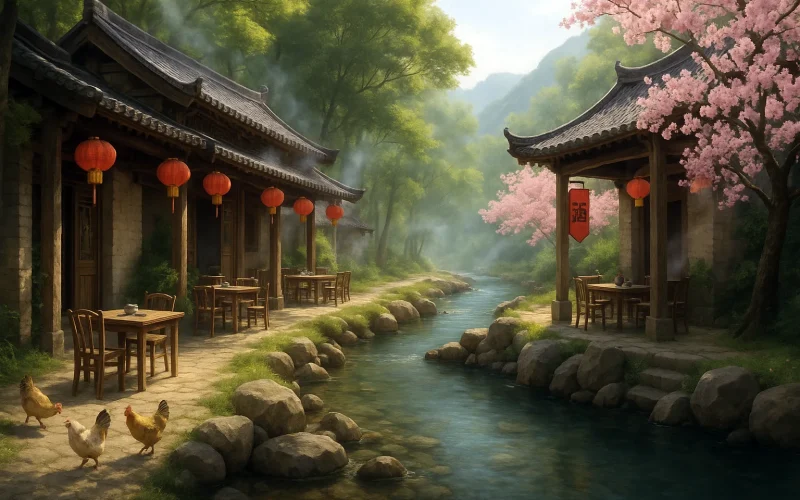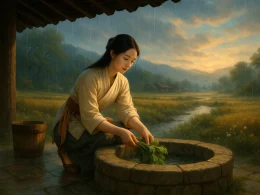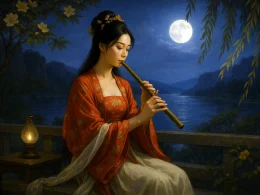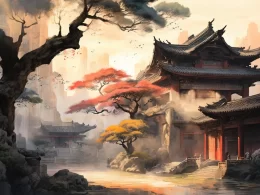Where woods grow deep and road winds, noon crows cry,
Beyond the stream a cottage I descry.
A vale of riotous blooms proclaims spring's cheer—
There hangs the tavern sign 'mid apricots sheer.
Original Poem
「村店」
刘过
林深路转午鸡啼,知有人家住隔溪。
一坞闹红春欲动,酒帘正在杏花西。
Interpretation
Composed during Liu Guo's travels, this poem titled Spring Excursion reflects his contemplation of rural life amidst wandering. Though unappointed to office yet deeply concerned for his country, Liu here departs from his typical impassioned style to capture subtle pastoral moments. The work reveals his appreciation for ordinary existence through delicate scenery, embodying a rare idyllic quality in his oeuvre. With natural imagery and unadorned language, it conveys quiet introspection within simplicity.
First Stanza: "林深路转午鸡啼,知有人家住隔溪。"
Lín shēn lù zhuǎn wǔ jī tí, zhī yǒu rén jiā zhù gé xī.
Deep woods, winding path—
noon crows a rooster;
across the stream I know
a household dwells.
Liu constructs auditory cartography: the rooster's crow (午鸡啼) pierces forest silence, mapping human presence through sound alone. "Across the stream" (隔溪) spatializes discovery—proximity maintained by distance, embodying the poet's liminal state between engagement and observation.
Second Stanza: "一坞闹红春欲动,酒帘正在杏花西。"
Yī wù nào hóng chūn yù dòng, jiǔ lián zhèng zài xìng huā xī.
A valley riots with blooms—
spring strains to burst;
a wine flag flutters west
of apricot flowers.
The stanza erupts in chromatic energy. "Riots with blooms" (闹红) translates "boisterous red" into kinetic botany, while "spring strains to burst" (春欲动) personifies the season as imminent eruption. The "wine flag" (酒帘) materializes conviviality, its position "west of apricot flowers" (杏花西) creating a painterly frame that nods to Du Mu's famed tavern without overt imitation.
Holistic Appreciation
The poem traces a journey from auditory inference to visual revelation. The opening's sonic hint (rooster crow) builds anticipation resolved in the second stanza's floral explosion. Liu masterfully balances containment and release: forest depth yields to valley openness, noonday stillness to chromatic agitation.
The "wine flag west of apricot flowers" crystallizes the poem's essence—human warmth framed by natural beauty, transience captured in a fluttering banner. This twenty-character miniature proves Liu's range extends beyond patriotic fervor to embrace nature's quiet epiphanies.
Artistic Merits
- Acoustic wayfinding
The rooster's crow (午鸡啼) operates as auditory compass, guiding perception through obscured landscapes. - Chromokinetics
"Riots with blooms" (闹红) translates color into motion, making visible spring's pent-up energy. - Fluvial liminality
"Across the stream" (隔溪) positions the poet as perpetual observer—near yet separate, intimate yet detached. - Horticultural framing
"West of apricot flowers" (杏花西) uses blossoms as natural proscenium arch for human activity.
Insights
Liu's poem teaches that wonder thrives at perception's edge—the half-heard sound, the glimpsed banner. Its "rooster across the stream" reminds us that presence often announces itself indirectly, requiring attentive listening to life's faint signals.
The "wine flag among apricots" offers an antidote to grandeur—finding fulfillment not in monumental achievements but in discovering taverns where blossoms frame the view. For modern readers, it models how to locate poetry in the overlooked: a crowing bird becomes a compass, a fluttering cloth a destination.
Ultimately, the work suggests that true exploration lies not in distance covered but in attention paid. Liu's spring excursion traverses mere miles yet spans the profound distance between hearing and knowing, seeing and savoring—a journey completed when apricots and wine flags align.
About the Poet
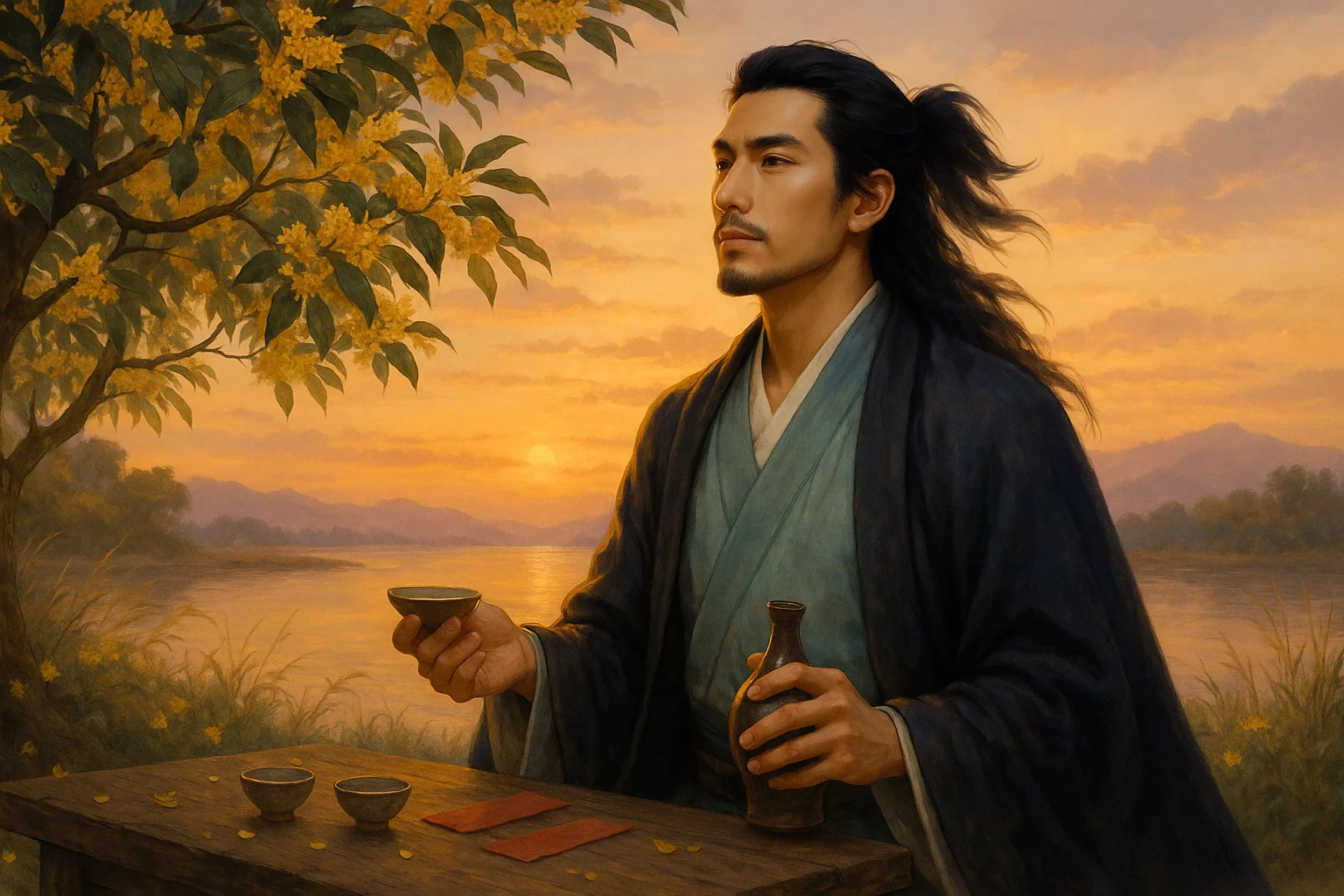
Liu Guo (刘过 1154 - 1206), a native of Taihe in Jiangxi, was a ci poet of the Bold and Unconstrained School (haofang pai) during the Southern Song Dynasty. Though he remained a commoner all his life, wandering the rivers and lakes, he associated with literary giants like Lu You and Xin Qiji. His ci poetry is impassioned and heroic, and his verse is vigorous and forceful. Stylistically close to Xin Qiji but even more unrestrained, Liu Guo became a central figure among Xin’s poetic followers.






